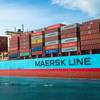French oil major Total is selling its stake in the North Sea Laggan-Tormore oil and gas field as it seeks to shed assets after a steep fall in the oil price, banking sources said.
Total is hoping to get up to $1.5 billion for its 80 percent operating stake in the field, located approximately 125 km north-west of the Shetland Islands in Britain's North Sea, the sources said.
The company aims to complete the deal in June, according to the banking sources.
A Total spokeswoman said: "We don't comment on market rumours."
Many oil companies are trying to sell assets in the ageing and high-cost North Sea oil province. However, the Laggan-Tormore is considered a high-quality asset as it is planned to start production at the end of this year.
It is expected to start production at the end of 2015 after initial delays, eventually reaching peak production rates of 93,000 barrels of oil equivalent per day.
Total had sought to make the Laggan-Tormore gas and condensate field its third major hub in British waters, after the existing Alwyn North and Elgin-Franklin provinces. As recently as 2013, the company expected Laggan-Tormore to turn it into the top oil and gas producer in British waters.
But oil prices roughly halved between last June and January leading Total, like most of its peers, to cut spending and sell assets in order to boost their balance sheets. Oil prices have since stabilised at around $60 per barrel, but are still off peaks of more than $100 reached last year.
Total last month said it would cut 2015 investments by up to 13 percent to $23-24 billion and would spend 30 percent less on exploration work following oil price decline.
"Total is reassigning their portfolio and want higher returns elsewhere in the world," one banking source said.
Denmark-based Dong Energy holds the remaining 20 percent stake in the field.
The sale of one of Total's key projects, meant to help the group reach its 2.8 million barrels of oil equivalent per day by 2017, also could signal that after having embarked on one of the largest asset-sale programmes in the industry in recent years, the group now has fewer non-core assets to dispose of.
(By Ron Bousso and Dmitry Zhdannikov; Additional reporting by Michel Rose in Paris; editing by Susan Thomas)












